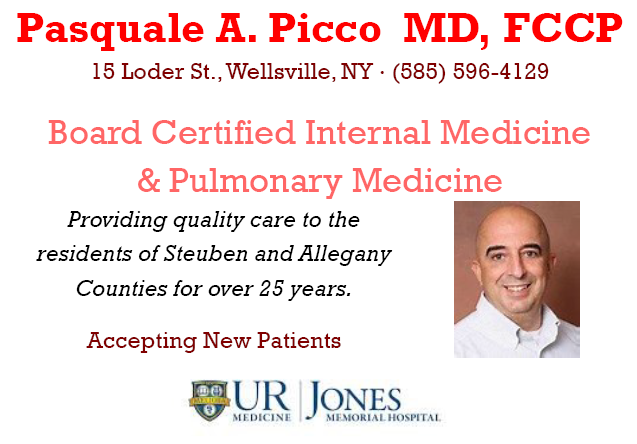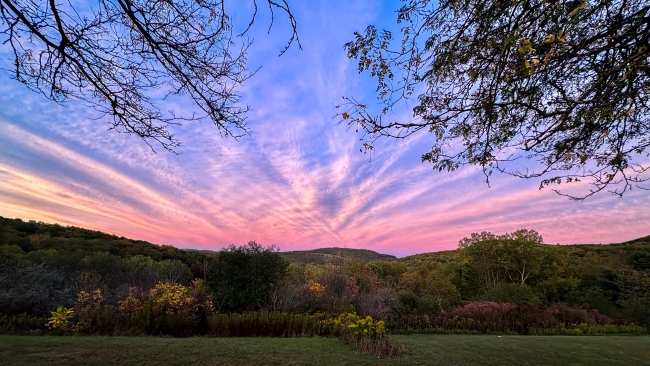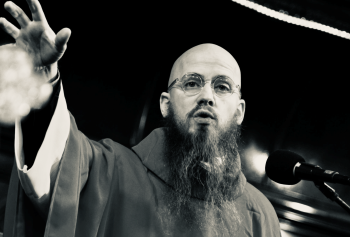By: Johanna Elattar, pictured is Rev. Dr. Jeff Hood
There are interviews you prepare for—and then there are conversations that change you. Speaking with Rev. Dr. Jeff Hood was the latter. A Catholic priest (Old Catholic), theologian, and national death row spiritual advisor, Dr. Hood has spent years in the shadows of the justice system, bearing witness to the final moments of men society has condemned to die. With a Nobel Peace Prize nomination now bringing global recognition to his life’s work, his message—that justice must be rooted in mercy—is impossible to ignore.
Rev. Hood has witnessed nine executions and is preparing for his tenth on June 10th. No other spiritual advisor in the United States has been physically present in the execution chamber as often. His role is singular and harrowing: to accompany individuals who have been sentenced to die, offering comfort, dignity, and spiritual presence in their final moments. He sees his work not as an endorsement of innocence, but as a refusal to let even the condemned die forgotten.
In early 2025, Dr. Hood was nominated for the Nobel Peace Prize by David Lemley, a professor of religion at Pepperdine University. In his nomination letter, Lemley described Hood’s work as “peace for peace’s sake” and “good for good’s sake.” He praised Hood’s unwavering commitment to standing with those society has discarded, stating that his presence with the condemned exemplifies “the peace that flows from honoring the dignity of disenfranchised people, and the peace that flows through the channel of one human spirit to another.” Lemley’s nomination situates Hood’s work not only as activism, but as an expression of radical spiritual integrity.

Ordained in 2006 at Rock Baptist Church in Rex, Georgia, Hood was later incardinated into the Catholic Church (Old Catholic) at Saint Miriam Parish and Friary in Flourtown, Pennsylvania in 2022. His academic path spans some of the most respected institutions in the country: Auburn University (BA), Southern Baptist Theological Seminary (MDiv), Emory University’s Candler School of Theology (ThM), University of Alabama (MA), Creighton University (MS), and Brite Divinity School at Texas Christian University (DMin). He also earned a PhD from the American Institute of Metaphysics, focusing on futuristic concepts of God, and completed multiple units of Clinical Pastoral Education at a Level I trauma center in Fort Worth, Texas.
But degrees are not what define his ministry. Hood’s work is grounded in action—relentless, risky, often controversial action. He has been arrested, assaulted, and threatened for his activism, which extends far beyond the death chamber. He is a tireless advocate for LGBTQ+ rights, racial justice, and systemic reform. His leadership in organizations such as the Texas Coalition to Abolish the Death Penalty, Fellowship of Reconciliation USA, and currently as a member of the Board of Advisers for Death Penalty Action has shaped national discourse on capital punishment and social justice.
He is also a prolific author, with over 100 books to his name. His 2016 book The Courage to Be Queer was named the third-best religion book of the year by the Independent Publishers Book Awards. Hood frequently collaborates with individuals on death row to produce original theological works, giving voice to those who are often silenced and stripped of personhood. His writing has appeared in major outlets such as The New York Times, WIRED, HuffPost, Rolling Stone, Slate, and on platforms like NPR, CNN, MSNBC, and Fox News.
During our conversation, Hood spoke with raw honesty about what it means to witness death—particularly the execution of Kenneth Eugene Smith in January 2024. Hood was the spiritual advisor in the chamber when Smith became the first person in the world to be executed using nitrogen hypoxia, a method now under intense global scrutiny. According to Hood, Smith remained conscious for much of the 23-minute process.
“It was shocking. It was grief. It was an injury to my soul,” he said. “I felt responsible. Like I hadn’t done enough to stop it.”
The United Nations condemned the execution as cruel and possibly torturous. Despite international backlash, Alabama proceeded with four more executions using nitrogen gas. In March 2025, Louisiana carried out its first using the same method. Other states, including Ohio, are considering adopting the practice.
Hood has emerged as one of the most vocal opponents of this trend, calling nitrogen executions dehumanizing and spiritually barbaric. Still, he remains committed to being present in those final moments—not to validate the system, but to humanize the person.
“My job is to make sure they know love,” he told me. “We are taught to be merciful because God is merciful.”
While Hood is best known for his advocacy on behalf of the condemned, he is equally clear about his compassion for victims’ families. In response to public criticism that he ignores their suffering, Hood has repeatedly stated that his ministry is about healing on all sides. “As a pastor, I am called to be loving and kind to everyone involved in these tragedies,” he said in response to state accusations of insensitivity. He has acknowledged that the trauma of extended court proceedings can reopen wounds for grieving families, often prolonging their pain. Hood has expressed admiration for groups like Murder Victims’ Families for Reconciliation, who advocate for alternatives to the death penalty as a means of breaking cycles of violence and fostering true healing.
His perspective challenges the core of America’s punitive system. Hood believes that justice must be transformational, not destructive. He often reminds people of John 8:7: “Let him who is without sin among you cast the first stone.” He doesn’t excuse crimes—but he refuses to erase the humanity of the person who committed them.
“Giving someone life without parole is often worse than execution,” he said. “They have to face what they did every day, with no hope of release. That’s no freedom. That’s purgatory.”
Hood doesn’t sugarcoat his critics. When asked how he responds to those who accuse him of defending murderers, he was direct: “They can go to hell.”
For all the bluntness, there’s a steady current of compassion behind every word. Hood doesn’t want sympathy. He wants change.
In 2016, he led a peaceful protest against police brutality in Dallas—a rally that turned deadly when a sniper opened fire, killing five officers. Amid the chaos, Hood used the cross he carried to push people away from danger. His actions likely saved lives. In recognition of his role, the Dallas Public Library created The Rev. Dr. Jeff Hood Collection—a permanent archive documenting his life and work.
Hood’s impact is not just measured in speeches or articles but in the private, sacred moments that occur in prison cells, execution holding rooms, and quiet phone calls with the condemned. He is a husband and father of five, and yet, many of the men on death row consider him family. Their relationships often last for years.
When asked how he felt about being nominated for the Nobel Peace Prize, he didn’t dwell on accolades.
“I didn’t expect anyone to notice. Nobody wants to get famous watching people die.”
But people have noticed. His life and work are now part of an international conversation. Whether seen as a radical priest, a necessary disruptor, or simply a man with a cross and a conviction, Rev. Dr. Jeff Hood is not going away.
His message to those considering the work of social justice is simple: “Sacrifice yourself. Our work is only to give.”
That work, for Hood, continues daily—on the phone with death row inmates, in protests across the country, in classrooms and on the page, and in execution chambers where the world turns its back.
As we ended our interview, one line stayed with me: “You can’t love your neighbor and create a system that hates them.”
Rev. Jeff Hood’s faith isn’t quiet. It is loud, embodied, and deeply inconvenient. It walks into places most avoid. And now, the world is finally paying attention.
—
Johanna Elattar is a Hornell NY based writer and columnist who enjoys social justice stories like this but also has a knack for community feature stories! You can contact her about your story anytime, americangrrl70@gmail.com






